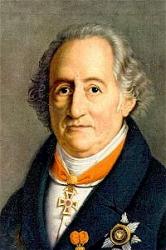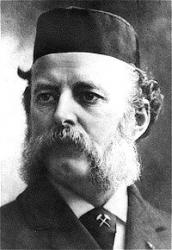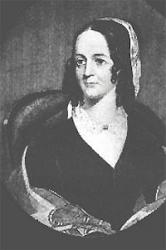Planning worship?
Check out our sister site, ZeteoSearch.org,
for 20+ additional resources related to your search.
- |
User Links
Person Results
‹ Return to hymnal



Export as CSV
Burton H. Winslow
Hymnal Number: d44 Author of "God sees" in Religious Education Music Manual Burton H. Winslow; Saco, Me.; clerk, Pepperrell Mfg. Co., Biddeford, Me.; Baptist; wrote hymns
LOC Name Authority Files
Burton H. Winslow
Mary B. Sleight
Hymnal Number: d132 Author of "Something for children to do" in Religious Education Music Manual
Mary B. Sleight
J. W. von Goethe

1749 - 1832 Hymnal Number: d106 Author of "Purer yet and purer I would be in mind" in Religious Education Music Manual Goethe, Johann Wolfgang von, son of Johann Caspar Goethe, a lawyer at Frankfurt-am-Main; was born at Frankfurt Aug. 28,1749, and died at Weimar, March 22, 1832. The greatest German poet of his day, and one of the most famous literary men of his own or any age, his sympathies were Classical rather than distinctively Christian; and as he himself said (Conversations with Eckerman, January 4, 1827), he wrote no poems suited for use in public worship.
A few pieces, principally from his well-known dramatic poem of Faust (pt. i. 1808; pt. ii. pub. posthumously, 1832), are found under his name in one or two Unitarian hymn-books. Good translations of both parts of Faust have been published by Dr. John Anster, Bayard Taylor, Sir Theodore Martin, and others; while a very large number of other persons have published translations of the first part. No attempt has accordingly been made to notice any translations except those in the hymn-books.
i. From Faust, pt. i., 1808.
i. Christ ist erttanden! Freude dem Sterbliche. Easter. The chorus of angels on Easter Day. Translated as “Christ has arisen! Joy to our buried Head," by Dr. F. H. Hedge, in his Supplement to Hymns for the Church of Christ, Boston, U.S., 1853, No. 836. A free version is also noted under A. C. Cox, No. 4.
ii. Die Sonne tönt nach alter Weise. Praise. The Song of the three Archangels in the Prologue in Heaven. Translated as "The sun is still for ever sounding," by Dr. F. H. Hedge, as above, 1853, No. 190.
iii. Verlassen nab ich Feld und Auen. [Evening]. Faust's Soliloquy on entering his study with the dog, Translated as "O'er silent field and lonely lawn," as No. 21 in W. J. Fox's Hymns & Anthems, 1841, repeated in English and American Unitarian collections.
ii. Miscellaneous.
iv. Des Maurers Wandeln. Written for the Freemasons' Lodge at Weimar, of which he became a member in 1780, and included in his Werke, 1828, vol. iii. p. 61, entitled "Symbolum." Translated as "The Mason’s ways are A type of Existence," by T. Carlyle, in his Past and Present, 1843, p. 318. Included,beginning "The future hides in it" (st. ii.), as No. 854 in Dr. Hedge's Collection, 1853, as above.
Two pieces are also found in collections under his name, viz.:—
1. Without haste! without rest, in Hymns of the Ages, Boston, U.S., 3rd Ser., 1865, p. 76, and repeated as "Without haste and without rest," in Stopford Brooke's Christian Hymns, 1881, &c. It is suggested by " Wie das Gestern Ohne Hast, Aber Ohne Hast, Drehe sich jeder, Urn die eigne Last," in Goethe's Zahme Xenien, 2nd Ser., 1823 (Werke, 1828, iii. p. 245).
2. Rest is not quitting The busy career. [Rest]| This is part of a piece beginning "Sweet is the pleasure Itself cannot spoil." No. 853 in Dr. Hedge's Collection, 1853, as above, marked as by " J. S. Dwight." There does not appear to be any equivalent poem in Goethe's Werke. [Rev. James Mearns, M.A.]
--John Julian, Dictionary of Hymnology, (1907)
===========================
Goethe, J. W. von, p. 441, i. The Exeter Unitarian Hymns, Psalms and Anthems, of 1863 and 1884, contains the several additional hymns from Goethe, the translations in each case being by the Rev. T. W. Chignell. Some of the versions are very free, and the distinctively Christian character of the translations is only very faintly present in the originals. [Rev. James Mearns, M.A.]
--John Julian, Dictionary of Hymnology, Appendix, Part II (1907)
J. W. von Goethe
H. O. Knowlton
Hymnal Number: d74 Author of "Jesus loves the little children, Knows about their work" in Religious Education Music Manual Knowlton, H. 0. Duffield notes under her hymn, "I cannot tell if short or long" (Trust), in Laudes Domini, 1884, that "Miss Knowlton was a school-girl in Illinois at the time of its composition. Professor W. F. Sherwin received it from her through the good offices of one of her teachers, a mutual friend " (English Hymns, 1886, p. 238).
--John Julian, Dictionary of Hymnology, Appendix, Part II (1907)
H. O. Knowlton
Rossiter W. Raymond

1840 - 1918 Hymnal Number: d31 Author of "For God is a friend unfailing" in Religious Education Music Manual Raymond, Rossiter Worthington, PH.D., was b. in Cincinnati, Ohio, April 27,1840. He graduated at Brooklyn Polytechnic, 1858, and also studied in Germany. He served in the Civil War of 1861-4 with the grade of Captain. Since then he has practised in New York as a consulting mining engineer. He was editor of the American Journal of Mining, and is a contributor to scientific literature. He has also written stories for children, a Paraphrase of Job, and some fugitive poetry. His hymns in common use include:—
1. Far out on the desolate billow. [God everywhere.] Written for the German tune, "Ich weiss nicht was soil es bedeuten," and published in The Plymouth Hymnal, 1894.
2. Morning red, Morning red. [Easter.] Written to the tune" Morgenroth," a German battle-song, and published in the American Book of Praise.
3. Now rest, ye pilgrim host. [Reviewing the Past.] This hymn is dated 1879, and was written for the 50th anniversary oi the Brooklyn Sunday School Union. It was included in The Plymouth Hymnal, 1891, No. 509, and, after revision by the author, in Sursum Corda, 1898, and other collections.
4. 0 Thou Who art inspiring. [Submission.] Appeared in The Plymouth Hymnal, 1894, No. 635, and later in other collections.
5. The God Who spann'd the heavens above. [Courage in Conflict.] "Written for my Sunday School, to be sung to the tune of the German patriotic song, ‘Der Gott, der Eisen wachsen liess' (by Arndt, p, 79, ii.), of which my first line is an evident and intentional imitation, though the remainder is not" (Author's MS.). It was published in The Book of Praise, the Sursum Corda, 1898, and others. It is sometimes attributed to "J. Clark,” but in error.
6. There dwelt in old Judaea. In Allon's Children's Worship, 1878.
Of the above Nos. 1, 2, 5 are in W. B. Bradbury's Clarion, 1867. Dr. Raymond is a Congregationalist, and is associated with the Plymouth Church, Brooklyn. [Rev. L. F. Benson, D.D.]
--John Julian, Dictionary of Hymnology, New Supplement (1907)
Rossiter W. Raymond
Sarah Josepha Buell Hale

1788 - 1879 Person Name: Sarah J. Hale Hymnal Number: d104 Author of "Our Father in heaven we hallow thy name" in Religious Education Music Manual Hale, Sarah Josepha, née Buell, born at Newport, New Hampshire, 1795, and married to David Hale, a lawyer, who died in 1822. Mrs. Hale edited The Ladies' Magazine, Boston, from 1828; and Godey's Ladies’ Book, Philadelphia, from 1837, besides publishing several works. Her hymn, “Our Father in heaven, we hallow Thy name" (The Lord's Prayer), appeared in Mason & Greene's Church Psalmody, 1831, No. 553, in 2 stanzas of 8 lines. Mrs. Hale, who was a member of the Protestant Episcopal Church, died in 1879. [Rev. F. M. Bird, M.A.]
--John Julian, Dictionary of Hymnology (1907)
Sarah Josepha Buell Hale
H. Siefert
Hymnal Number: d39 Author of "From the far blue heaven, where the angels dwell" in Religious Education Music Manual
H. Siefert
W. H. Main
Hymnal Number: d28 Author of "Harvest fruits" in Religious Education Music Manual
W. H. Main
E. H. Casselberry
Hymnal Number: d30 Author of "Broadcasting the word" in Religious Education Music Manual
E. H. Casselberry
W. J. Rooper
Hymnal Number: d21 Author of "Fight then, good soldiers" in Religious Education Music Manual
W. J. Rooper


 My Starred Hymns
My Starred Hymns


